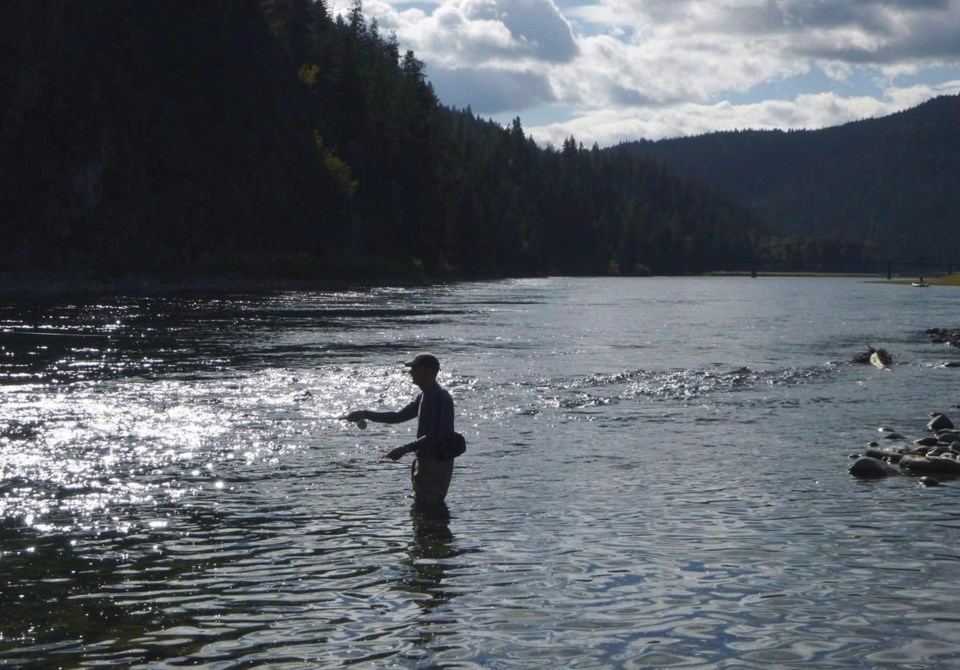The United States and Canada have agreed to launch a joint probe into a long-running cross-border dispute involving pollution from coal mines in British Columbia flowing into American waters.
"Our two countries are committed to a collaborative, science, and Indigenous knowledge based, action-oriented path forward," said a joint statement from U.S. ambassador to Canada David Cohen and his Canadian counterpart Kirsten Hillman.
The agreement, announced Monday, involves both national governments, along with B.C., the states of Montana and Idaho, and six Indigenous communities on both sides of the border.
The agreement creates a governance body and a research panel tasked with finding ways to reduce contamination from coal mines in B.C.'s Elk Valley flowing into Lake Koocanusa, a reservoir straddling the border and into U.S. rivers. The two bodies will work under the auspices of the International Joint Commission, a century-old, treaty-based group that mediates water disputes between the two countries.
The governance body is to be running by the end of June, with the final research report due two years after that.
The issue has festered for a decade, said Kathryn Teneese, chairwoman of the Ktunaxa Nation, which represents the six First Nations in Canada and the U.S. who live along those waters. Teneese spoke for the four Canadian nations.
"It's been a long time coming," she said. "This is a good start. It's just the beginning of what's going to be a long process."
Teneese called the two-year timeline "aggressive."
"We're prepared to do our part in making sure everything moves forward. We want to ensure all parties have the same level of commitment."
Decades of open-pit mining in southeastern B.C. have exposed selenium, an element toxic to fish that is associated with coal deposits. That selenium has been flowing downstream.
A recent study by the U.S. Geological Survey confirms contamination is coming from those mines, adding the efforts by mine owner Teck Resources to slow those releases aren’t making much difference to the amount flowing south.
In 1985, the report estimates just under two tonnes of selenium flowed down the Elk River into Lake Koocanusa. By last year, that had grown to nearly 11 tonnes.
The study, published last November, said water quality guidelines for selenium are now regularly exceeded on both sides of the border and concentrations haven't been lower than U.S. standards at the border since July 2020.
It says the selenium continues to be washed downstream, especially during high flow periods.
Teck has installed $1.4-billion worth of water treatment at the mine and is structuring new activity to capture at least 95 per cent of selenium from current operations. Montana government data shows selenium water concentrations in Lake Koocanusa have been stable since at least 2012.
American officials, including senators, the State Department and the Environmental Protection Agency, have been pressing for years for a joint U.S.-Canada investigation into the situation. U.S. President Joe Biden and Prime Minister Justin Trudeau had promised action by last summer.
"This has been a growing problem for over a decade," U.S. Deputy Assistant Secretary of State Rachel Poynter told The Canadian Press. "It is not improving.
"This submission is a recognition by both of our countries of the importance of this issue, a recognition that there is a problem that needs to be resolved,” Poynter said.
Last August, B.C. finally agreed to a role for the International Joint Commission.
The province released a joint statement from four ministers Monday, including Environment Minister George Heyman, saying it supports the investigation.
"In its proposed role as a neutral facilitator, the International Joint Commission is uniquely positioned to assist in building crucial relationships and trust across this key international watershed," the statement says.
"We look forward to collaborating with governments, First Nations and community partners as we work together to accelerate our joint efforts to enhance and protect water quality in the Elk-Kootenay/Kootenai watershed."
The investigation will be required to regularly release its findings and conclusions.
"Transparency will help result in a better outcome for all the people, species and communities that depend upon this watershed," said Stephenne Harding, Senior Director for Lands at the White House Council on Environmental Quality.
Teck, in the process of selling its coal assets to Swiss multinational Glencore, is not represented on the governance board. It will be able to submit information to the panel, according to senior U.S. administration officials.
Teck spokesman Chris Stannell said the company is seeking to learn more about the agreement.
"Teck is committed to continuing to work cooperatively with Indigenous peoples, communities and governments to protect aquatic health and share data," he said in an email. "We have made significant progress implementing the Elk Valley Water Quality Plan."
The announcement was also welcomed by environmentalists, who have long sought some kind of action from the two governments.
"Both governments have an opportunity to restore the faith of all citizens by helping this investigation to progress as smoothly as possible,” said a statement from Casey Brennan, conservation director of the group Wildsight.
"For a crisis as complex as the one we face in the Elk Valley, there won’t be any simple solutions."
This report by The Canadian Press was first published March 11, 2024.
Bob Weber and James McCarten, The Canadian Press



